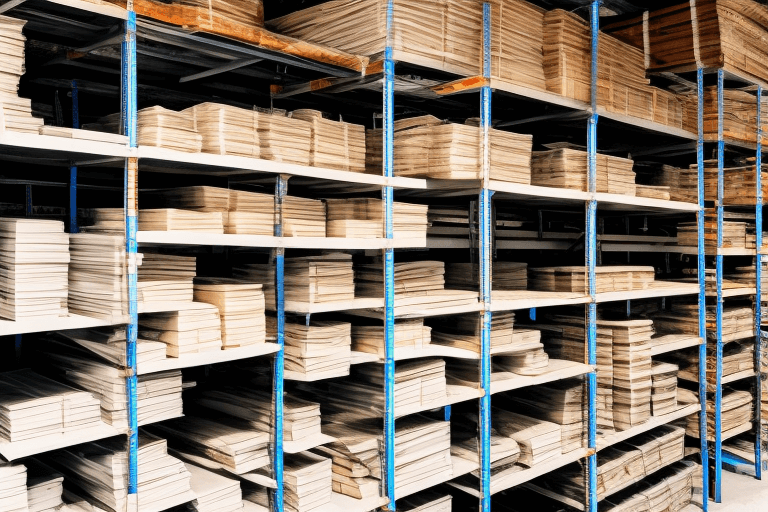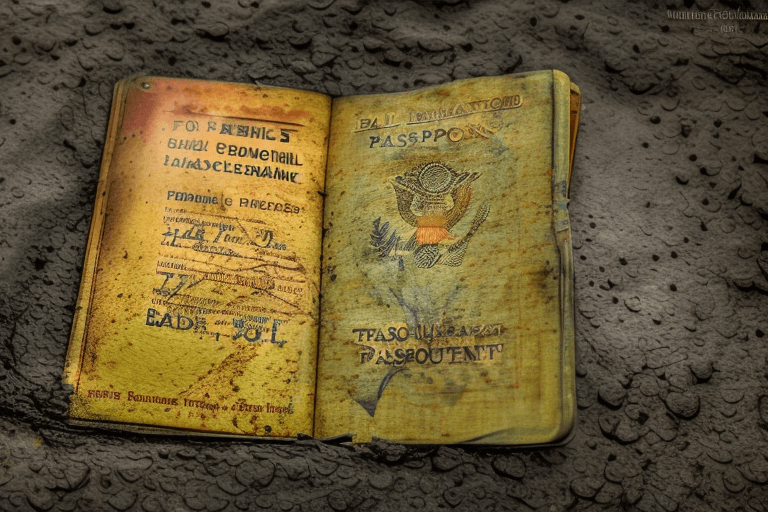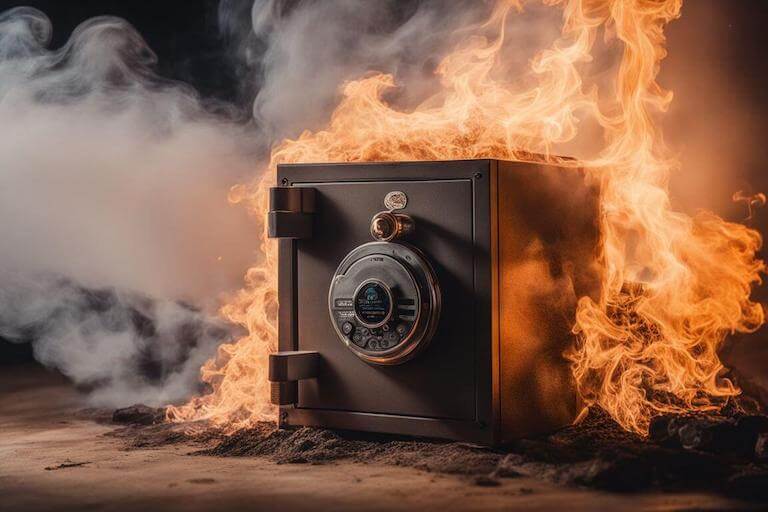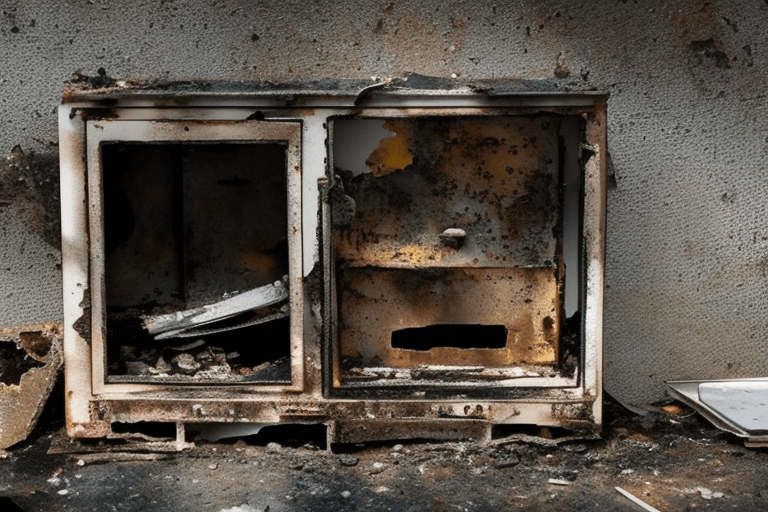
Choosing the Best Fireproof Safe: Our Top Picks for 2024
Table of Contents
When it comes to safeguarding your valuable belongings, investing in a high-quality fireproof home safe is essential. Not only will it protect your items from theft but also from potential natural disasters like fire.
Fire, in particular, can cause significant damage to your valuables, making it crucial to prioritize fire resistance when selecting a safe.
In this comprehensive guide, we will explore the key factors to consider when buying the best fireproof home safe. From understanding fire ratings to choosing the right type of safe for your specific needs, we will provide you with the knowledge to make an informed decision.
Our Best Selling Fireproof Safes of 2024
Hollon HS-310E 2 Hour Fireproof Home Safe w/ Electronic Lock
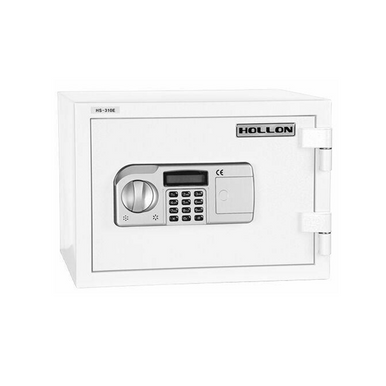
$381.00
**Allow 3" for handle and hinges** Maximum protection from fire and water. Introducing the Hollon HS-310E 2 Hour Fireproof Home Safe with Electronic Lock,...… read more
- Fire Resistance: The Hollon HS-310E is fire-rated for two hours at up to 1700°F, ensuring internal temperatures remain at 350°F or below, protecting sensitive documents and valuables. It’s designed with thick walls and doors for 100% more fire protection than typical home safes.
- Impact Resistance: It has a 30-foot impact rating, meaning it can withstand a fall from significant heights without compromising its integrity.
- Water Protection: The grooved door seal adds protection against water, especially in scenarios where water might be used to extinguish a fire.
- Locking Mechanism: It uses an easy-to-program electronic keypad with a master code option, two active rectangular locking bolts, and fixed hinge side bolts, offering robust security against theft.
- Convenience: It includes an anchoring hole and bolting hardware, allowing you to secure it to the floor for added safety.
Gardall SS1913-CK 2 Hour Fire Record Safe
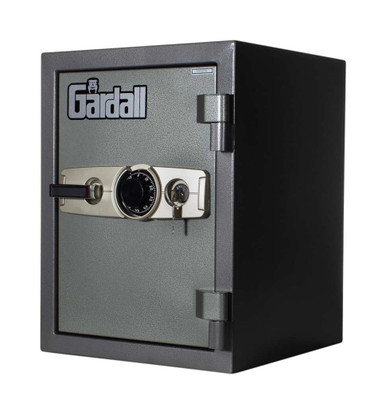
$1481.25
**Allow 1 1/2" for handle and hinges** Introducing the Gardall SS1913-CK 2 Hour Fire Record Safe, a top-of-the-line storage solution designed to protect your valuable...… read more
- Fire Protection: This Gardall safe is fire-rated for two hours at high temperatures, providing reliable protection for documents and valuables during a fire.
- Storage and Security: It’s built with heavy-duty materials, making it resistant to tampering and forced entry. It’s designed for use in both homes and businesses, ensuring protection for both important records and cash.
- Versatile Locking System: The safe comes with dual key and combination locks, giving an extra layer of protection and control over access.
AMSEC CEV2518 AmVault TL-15 Rated 2 Hour Fire Safe
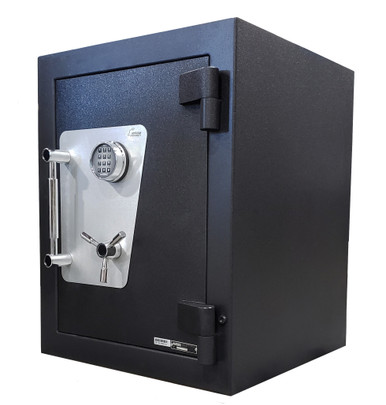
$4105.00
Introducing the AMSEC CEV2518 AmVault TL-15 Rated 2 Hour Fire Safe, the ultimate safeguard for your valuables. With its UL-certified TL-15 burglary rating and 120-minute...… read more
- Burglary Protection: This safe by AMSEC has a TL-15 rating, meaning it has been tested to resist attacks using high-powered tools for at least 15 minutes, making it highly secure against theft. The rating is awarded by Underwriters Laboratories (UL), a rating agency considered to be the "gold standard" of the safe industry.
- Fire Resistance: With a two-hour fire rating, the safe ensures valuables inside remain protected even in intense fires.
- Construction: It is made from heavy-duty steel with a reinforced barrier that combines high-strength materials, offering exceptional protection against both burglary and fire. This makes it a top choice for those needing superior protection.
Types of Fireproof Safes
When choosing a fireproof home safe, it's essential to consider the type of items you plan to store. Different types of media have varying temperature thresholds.
For example, firearms, precious metals and jewelry can withstand higher temperatures compared to paper documents, which can withstand higher temperatures still compared to digital media like flash drives and optical media. Understanding the temperature limits of your valuables will help you select the appropriate fireproof safe.
There are three main categories of fireproof safes:
Paper Safes: These safes are designed to protect paper documents, passports, certificates, cash, and other similar items (along with anything else that fits in the safe). They can maintain internal temperatures of up to 350°C (176°F).
Digital Media Safes: These safes are specifically designed to protect digital media such as USB drives, DVDs, CDs, and external hard drives. Digital media is more susceptible to heat, with a temperature limit of 50-80°C (122-176°F).
Data/Magnetic Media Safes: These safes are intended to protect computer backup tapes, floppy disks, video tapes, and audio tapes. They have even lower temperature limits, with data media only being able to withstand temperatures of up to 52°C (125°F).
It's important to note that some items, such as film, negatives, transparencies, and microfiche, are susceptible to both heat and humidity. These delicate items should also be stored in a fireproof data safe to ensure their protection.
Here at Guardian Safe and Vault, we have the right fire safe for you, no matter what you need to protect. Get informed, then check out our selection!
Understanding Fire Ratings
Fire ratings are vital in determining the level of protection a safe can offer against fire. They indicate the amount of time a safe can resist heat and maintain a specific internal temperature threshold during a fire.
While regular, single-walled safes may be suitable for hiding personal items, they are not effective in protecting your valuables from fire. Therefore, it is crucial to choose a safe with an adequate fire rating.
Fire safes are typically rated based on the duration they can withstand heat and smoke, and the internal temperature they can maintain inside the safe.
Ratings start at 30 minutes and can go up to 120 minutes or more. The longer a safe can resist heat and smoke, the safer your belongings will be in the event of a fire.
It's important to note that the term "fireproof" can be misleading, as no safe can guarantee complete protection against all fires. However, selecting a safe with a higher fire rating increases the chances of your belongings surviving a fire.
Evaluating Fireproof Safes
When selecting the best fireproof home safe, there are several key factors to consider. Understanding these factors will help you make an informed decision and ensure that the safe you choose meets your specific needs. Let's explore these factors in detail.
1. Fire Rating
As mentioned, the fire rating of a safe indicates the duration it can maintain an internal temperature at or below a specific temperature during a fire.
The longer the fire rating, the better the protection. Look for safes with a minimum one-hour fire rating.
2. Size and Capacity
Consider the size and capacity of the safe based on what you plan to store and any potential future needs. Ensure that the safe is spacious enough to accommodate your valuables and has room for additional items.
It's better to choose a slightly larger safe than to find yourself running out of space.
3. Fireproof Construction
Pay attention to the construction of the safe. Look for double-walled steel bodies filled with fire-resistant materials. These materials often contain hydrates like alum or gypsum that release water vapor when exposed to heat.
The water vapor helps regulate the internal temperature and creates a pressure seal against external heat. Choose a safe with precision-engineered features like intumescent strips that swell when exposed to heat, sealing the safe shut.
4. Seal and Protection Against Moisture
Ensure that the safe you choose has a seal to protect your belongings from moisture and heat.
Cheaper fire safes may lack a seal, making them vulnerable to rust, moisture damage, and the ingress of heat. A proper seal is essential to safeguard your valuables from fire, smoke, and water.
5. Security Features
Consider the security features offered by the safe. While fire resistance is crucial, you may also want your valuables protected against theft. Check for independent security Burglar Ratings such as those offered by UL or K.I.S.
Many times, at least buying a safe with an independently rated lock is worth it.
Look for safes with reliable locking mechanisms such as keylocks or electronic locks. Combination locks with key overrides can provide an additional layer of security.
6. Insurance Coverage
If you plan to insure the valuables stored in your safe, consult with your insurance provider to understand the level of coverage they offer.
Insurance coverage may depend on factors such as the safe's security rating, location, and the value of the items stored. It's essential to choose a safe that meets the requirements set by your insurance provider to ensure adequate coverage.
7. Water Resistance
While not directly related to fire resistance, it may be worth considering a safe with water-resistant features.
This can protect your valuables from water damage caused by sprinklers, hoses, or flooding. Safes with airtight, water-resistant seals can provide an additional layer of protection against water hazards.
Anything Else to Consider?
Here are some additional tips to keep in mind when purchasing a fireproof home safe:
- Avoid buying the cheapest safe available. Investing in a high-quality safe is essential to ensure the safety of your prized possessions and you generally get what you pay for. A cheap safe may fail to provide adequate protection in the long run.
- Purchase from a reputable company with an excellent reputation in the industry. Look for brands known for their quality and reliability. Here at Guardian Safe and Vault, we work directly with some of the top brands in the industry.
In Summary
When it comes to safeguarding your valuable items, investing in a fireproof home safe is a wise decision.
By understanding fire ratings, knowing the temperature limits of what you intend to store, and considering key factors such as size, construction, and security features, you can choose the best fireproof safe for your specific needs.
Remember to prioritize fire resistance, but also consider additional features like water resistance and burglary rating if necessary.
By following these guidelines and conducting thorough research, you can make an informed purchase that provides the utmost protection for your prized possessions.
Don't compromise on the safety of your valuables - invest in the best fireproof home safe that suits your requirements and gives you peace of mind.

